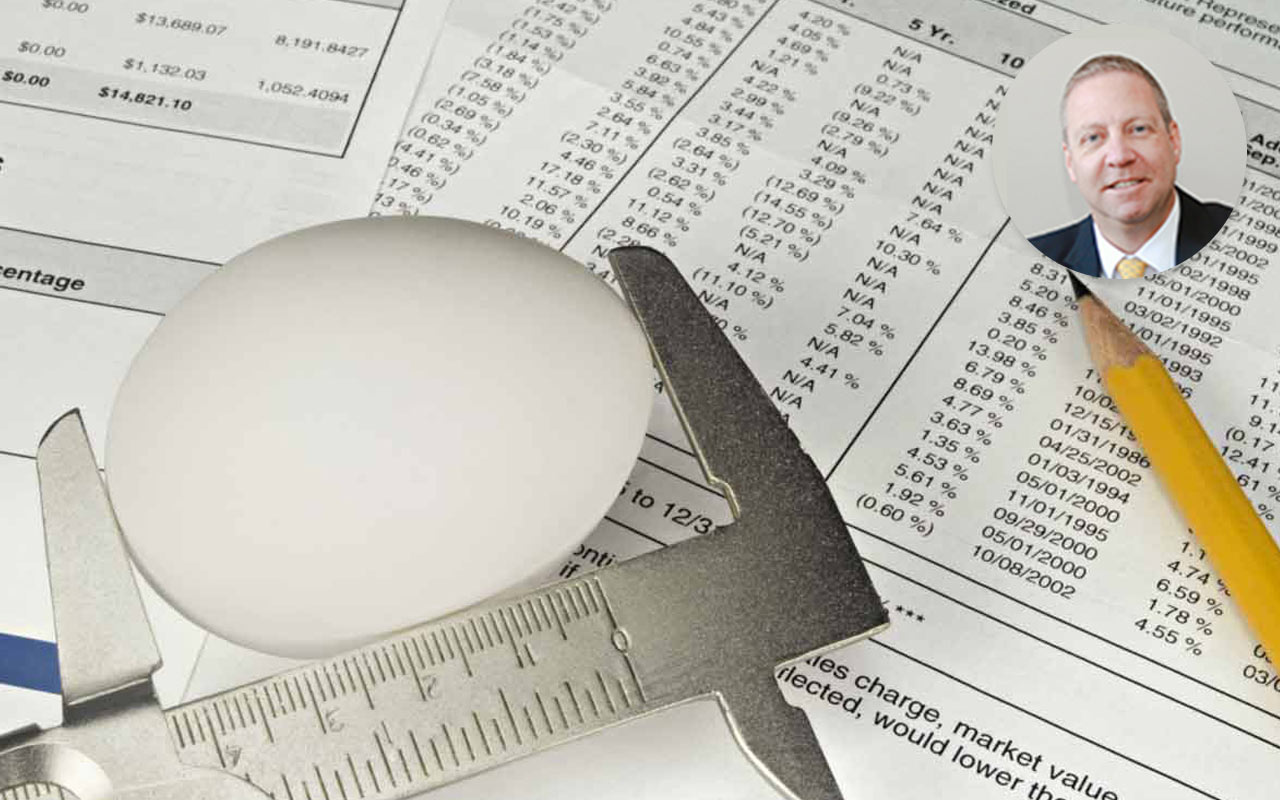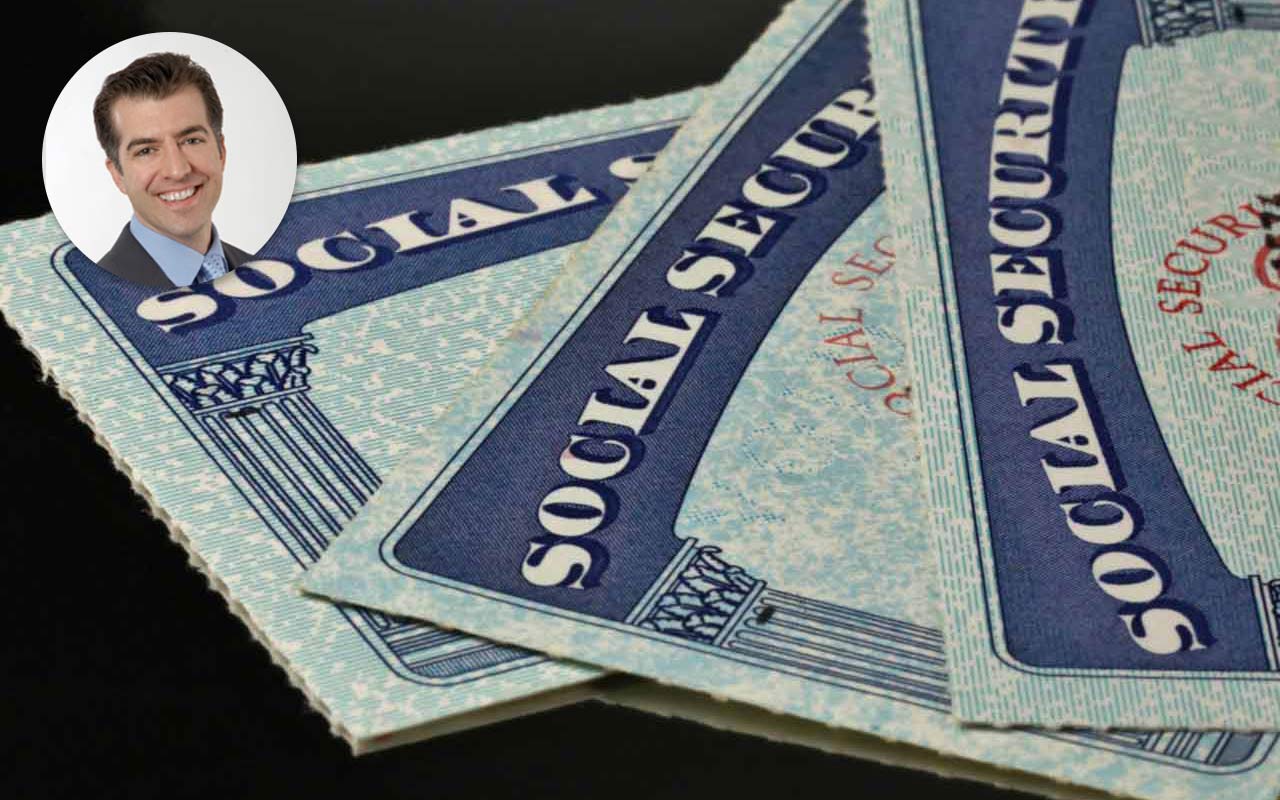Claim Social Security Early or Wait? Advice from the Pros
Few retirement conundrums are more confounding than this question: When should I claim Social Security benefits?

Profit and prosper with the best of Kiplinger's advice on investing, taxes, retirement, personal finance and much more. Delivered daily. Enter your email in the box and click Sign Me Up.
You are now subscribed
Your newsletter sign-up was successful
Want to add more newsletters?

Delivered daily
Kiplinger Today
Profit and prosper with the best of Kiplinger's advice on investing, taxes, retirement, personal finance and much more delivered daily. Smart money moves start here.

Sent five days a week
Kiplinger A Step Ahead
Get practical help to make better financial decisions in your everyday life, from spending to savings on top deals.

Delivered daily
Kiplinger Closing Bell
Get today's biggest financial and investing headlines delivered to your inbox every day the U.S. stock market is open.

Sent twice a week
Kiplinger Adviser Intel
Financial pros across the country share best practices and fresh tactics to preserve and grow your wealth.

Delivered weekly
Kiplinger Tax Tips
Trim your federal and state tax bills with practical tax-planning and tax-cutting strategies.

Sent twice a week
Kiplinger Retirement Tips
Your twice-a-week guide to planning and enjoying a financially secure and richly rewarding retirement

Sent bimonthly.
Kiplinger Adviser Angle
Insights for advisers, wealth managers and other financial professionals.

Sent twice a week
Kiplinger Investing Weekly
Your twice-a-week roundup of promising stocks, funds, companies and industries you should consider, ones you should avoid, and why.

Sent weekly for six weeks
Kiplinger Invest for Retirement
Your step-by-step six-part series on how to invest for retirement, from devising a successful strategy to exactly which investments to choose.
Few retirement conundrums are more confounding than this question: When should I claim Social Security benefits?
The credentialed financial advisers whose columns appear on our Wealth Creation Channel have plenty of insights to share, from common rules of thumb to specific scenarios from their own clients that could be enlightening to others struggling with this all-important decision.

Obviously, as tempting as it is to take the money and run early on, if you delay benefits, you’ll garner the greatest advantage possible of maximizing your income — an 8% growth on your benefits per year for the period after full retirement age until you reach age 70. So, if your family history shows a trend of health and longevity, by all means, delay those benefits and subsidize your early retirement years with money from your other assets. You could end up with up to 32% more in benefits if your full retirement age is 66, just by waiting until age 70.
On the flip side, if you are in poor health and your body is worn down from your career, or maybe the average life expectancy in your family is just 75, then taking Social Security early could be the right option for you.
The rule of thumb is if you have health, wealth and longevity on your side, delay doing so as long as possible to ensure you end up with the greatest amount of income possible.
— Justin Goodbread, Founder and CEO of Heritage Investors

Marguerita Cheng: A Cancer Survivor Decides to Take His Benefits Early
In 2000, my client was 59½ and found himself experiencing many life transitions. He was a two-time cancer survivor. His wife suffered two mini-strokes, and then she had a major stroke and died. He always thought his wife would predecease him. At age 59½, he was offered early retirement with a generous severance package and health care for life. These funds would take him to age 61. I advise my clients to keep six to 12 months of cash reserves. Candidly, he had closer to six months, but with annual leave/sick leave & incentive pay, he did have 12 months. I told him that it was OK for him to take time off. He needed the time for himself. I assured him that he didn’t need to just take any job, rather he could be selective.
He did end up taking Social Security at age 62. I was a younger adviser, only in the business one year, but I learned so much from working with this client.
He eventually remarried. Cancer struck again and spread to his liver. He passed away, shy of his 66th birthday. I attended his memorial service and his wife told me, “Rita, thank you for being here. Most importantly, thank you for the five amazing years we had together. I miss him so much, but I thank you for the incredible memories. We visited Europe twice together before he became too ill to travel.”

T. Eric Reich: Consider Your Break-Even Point Carefully
It’s a delicate equation for those aiming not to leave money on the table, but knowing your break-even point can help. The break-even age is the age when you would receive the same total dollar amount whether you claimed benefits earlier or later. For those choosing between claiming at age 62 or 66, the break-even point comes between age 78/79. The break-even point for those choosing between claiming at 66 or 70 is age 82/83. Every year after that you would get more money, overall, by waiting to claim.
This is the TECHNICALLY correct answer, mathematically. That’s NOT to say that if you think you are going to live a long time you should necessarily wait until age 70. There are many other reasons to claim it earlier. I find that many retirees would prefer to have the money earlier, at say 66, because they feel they won’t be as active or travel as much at 82 or 83. Therefore, to them personally, the money means more to them now than in 15 to 20 years.
— T. Eric Reich, President and Founder of Reich Asset Management, LLC

Marguerita Cheng: Why My Dad Decided to Wait to 70
I am a financial planner because of my dad. Dad was a scientific developer who entered the emerging field of IT in the 1960s. He was always thinking one step ahead. My parents are 14 years apart in age. My dad was healthy, active and fit, until he was struck with Parkinson’s disease.
My dad realized that by deferring his benefit to age 70, he would lock in a larger benefit. He knew that most likely, he probably would predecease my mom. So, by deferring his benefit, he was providing the largest benefit possible for my mom.
My dad battled the disease for nine years and died in 2015. Mom misses him, but I am pleased to report that she is doing well financially and has someone special in her life.

Mike Piershale: Senior Marriage (and Divorce): It Could Pay to Hold Off
You may want to push the pause button before taking that walk down the aisle if you’re close to retirement and counting on income from Social Security. There are some important rules you need to know to time that wedding day to maximize your Social Security benefits.
- Marriage: The most uncomplicated scenario would be getting married for the first time, with no ex-spouse or deceased spouse in the background of either spouse. In this case, you must be married at least one year in order for one of the spouses to be eligible for a spousal benefit. This is where one spouse receives half of the other spouse's Social Security benefit in the case where it's higher than their own. The higher-income spouse must have claimed their own benefit, and the spouse claiming the spousal benefit must be at least 62 years of age.
- Divorce: If you are receiving a spousal benefit on an ex-spouse’s work record, then timing is critical. In order to receive this benefit, you must have been married for at least 10 years, and both you and your ex must be at least 62 years of age. If you're close to the 10-year mark and contemplating a divorce, you may want to wait until after you reach that anniversary if you don’t want to lose the spousal benefit. If you remarry, you will no longer be eligible for those ex-spouse benefits. But you will be eligible for spousal benefits on your new spouse’s record as long as you both have reached age 62.

Joe Bert: Sometimes Waiting Until Age 70 is a Costly Mistake
For most people we would encourage the highest earner to try and delay claiming Social Security for as long as possible, and I think most people have gotten that message. However, many people think that’s all there is to it: Wait longer and get more. The mistakes we see are when people fail to take into account spousal benefits, either due to death or the spouse claiming on their own record.
We had a prospect (age 68) whose husband passed away 10 years ago. She was still working and wanted to wait until 70 to take her own benefit so it could be as large as possible. She was shocked to find out she was entitled to her husband’s full benefit while continuing to delay her own! She was missing out on $24,000 per year while her own benefit continues to grow at 8% per year!
Another prospect couple had come in recently, and she was claiming on her own record. He was 67 and not taking any benefit at all because he wanted to wait until age 70. Again, we had to educate them about his ability to file a restricted application for spousal benefits on her record now and continue to let his own benefit grow. Again, this was $12,000 per year he was missing out on.
Unfortunately, people do not know the benefits they are entitled to. We see it all of the time.

Lisa Brown: A Social Security Plan for Corporate Executives
For my corporate executive clients, I like to structure their stock option income and deferred compensation payments in retirement to cover their living expenses from the time they retire until age 70. By waiting until age 70 to take Social Security, they get the maximum benefit.
One of my clients deferred taking Social Security until age 70 and his benefit is almost 75% higher than if he collected at 62. Plus, he was paying a lot in tax the first 10 years of retirement, so he did not need any more income!

Carlos Dias Jr.: Much Higher Benefits When Filing a Restricted Application
A couple came to me in December 2016. They had a nice nest egg, but they wanted to take Social Security early for a couple of reasons: They had a rental property with a large mortgage, so they needed some immediate income, and they were concerned about the health of the Social Security system, so they wanted to access their benefits earlier. That’s not uncommon, in my experience, and it can hurt people in the long run. We came up with a better plan instead.
Here is the scenario:
- The husband was 63 (born in May 1953) and the wife was 64 (born in April 1952);
- The wife was still working and earning approximately $90,000 per year;
- Both had pensions and a decent amount of retirement assets (around $500,000);
- Both were contemplating taking early Social Security, even though the wife was going to work until age 66 (she would have to pay back part of the Social Security benefit received); and
- Both thought they weren’t eligible for any Social Security strategies because of the new laws that went into effect in November 2015.
With the help of Social Security planning software, we came up with the following scenario:
- The couple would use a portion of their retirement assets until the husband reached 64 years and 11 months;
- The husband would file for Social Security at 64 years and 11 months, (approximately $2,100 per month);
- The wife would file a restricted application on the husband’s Social Security and retire at age 66, as planned (approximately $1,100 per month); and
- The wife would continue receiving approximately $1,100 per month until age 70. Then she would file for her own Social Security (approximately $3,500 per month).
By using the above, here’s what we accomplished:
- The wife avoided being penalized by filing for her own Social Security while she was still working;
- The husband received a higher Social Security benefit;
- The wife took the opportunity to delay her own Social Security and let it grow, ultimately receiving approximately $3,500 per month by age 70 (about $1,500 higher than it would have been otherwise); and
- If the wife passed away prematurely (she’s older), the husband would not have the opportunity to receive her Social Security benefit, or if husband passed away her Social Security benefit would’ve been a lot smaller.

Charles Scott: A Divorced Woman Makes a Surprising Survivor Benefit Discovery
We have a divorced, retired, 63-year-old client who had been married for over 20 years to a highly compensated executive. Recently, she heard that her ex had passed away. Because her ex had remarried, our client didn’t know that she would be entitled to a divorced-survivor benefit. We pointed out that she had been married for over 10 years, is currently single, and is over the age of 60. So, she is entitled to his full retirement benefit, although it will be reduced because she is electing to take the benefit before her own full retirement age.
She honestly thought that she would have to settle for her own Social Security benefit, which was much smaller because of her “stay at home mom” period during her marriage, which impacted her work history.
As a side note, because our client is over 60 years old, she could remarry and the marriage would not affect the eligibility of her divorce-survivor benefit at all.
— Charles C. Scott, President of Pelleton Capital Management, Ltd.

Lisa Brown: A Holding Pattern for Those Still Working in Retirement
A lot of my clients are pleasantly surprised at how many consulting offers they get during their retirement years. I have a client who retired at 60, and about a year later her phone was ringing off the hook with consulting offers.
She’s accepted a few jobs, and we are delaying taking her Social Security, as the $40,000 she’s making consulting is far exceeding the Social Security $16,920 annual earned income limit. And her benefit would be permanently reduced if she started benefits now.

Marguerita Cheng: An Independent Woman Waits Until Full Retirement Age
My client, who is single and 64, retired at age 62 but didn’t start taking Social Security then. Instead, she set a goal to start claiming at her full retirement age of 66, to get 100% of the benefit she has coming to her. She is in amazing health. Her dad is 88, and still going strong. Susan has minimal debt, about $45,000 left on a 15-year mortgage, which she will pay off by the time she is 67. She lives modestly but is a great saver. She contributed the maximum amount to her 401(k) on a pre-tax basis (no catch-up though) and the maximum amount to her Roth IRA (including catch-up contributions).
Susan is very forward thinking. She purchased long-term care insurance through a group plan even before I met her (she started retirement planning with me when she was 54). Because she doesn’t have children, she was 100% comfortable purchasing LTC. She didn’t want to be a burden to her siblings.
She is mainly concerned with longevity risk and wants to make sure her savings will last, but also likes the flexibility of her plan.
- Conclusion: First, I think it’s important to decouple the decision to retire from the decision of to start claiming Social Security. Susan’s case shows how these decisions are separate and distinct. And she built in some wiggle room: Even if she decides she can’t wait until her full retirement age, she won’t experience as significant of a reduction in her benefits as she would have if she had started taking them when she retired. For her, the middle of the road is the right place to be.

Debbie Meyer: A Modified File-and-Suspend Strategy for a Married Couple
One of my clients recently retired at age 64. He is married, and his wife is about the same age. She plans to work part-time until age 70 and is in good health. They both have a solid earnings history, so her benefit will be more than half of his benefit when she decides to file on her own Social Security record. His health isn’t great, and I shared a break-even analysis (powered by Social Security Timing software) to understand how his life expectancy impacts the Social Security benefit strategy. We were especially interested in exploring the file-and-suspend strategy before the rules changed effective April 30, 2016.
Both husband and wife were born before 1954, and a modified version of the file-and-suspend strategy applies to their situation. After discussing the pros and cons with me, the couple decided on this strategy:
- Husband files for his Social Security benefit at age 65.
- Wife files for a restricted application for spousal benefit at her full retirement age, and will be paid half of her husband’s benefit.
- When wife turns 70 and fully retires, she switches to her own Social Security benefit record.
- Although husband receives a slightly reduced Social Security benefit, he is happy to have the cash flow early. He doesn’t know if he’ll live past the age of 85 (his break-even age) and he wants to ensure that he and his wife benefit from a system to which they contributed for so many years.

Michael Aloi: Using an IRA to Postpone Social Security, Reduce Future Taxes
Joanna wanted to retire at 62 from her insurance operations job. She had had enough, the tipping point coming when after 31 years they took away her office with the window view. It was time, she said. In a conversation with her shortly thereafter, she said she figured she had enough in cash and Social Security to make ends meet. I had to do a double take. Taking Social Security early, I explained, meant locking in a reduced income stream for the rest of her life. And if prices double in her retirement — which at 3% inflation means they could in her lifetime — her income wouldn’t keep up with her lifestyle, even with Social Security cost of living adjustments.
Instead, I suggested drawing down her IRA from age 62 to 67 — maybe even 70 depending on the performance — then turning on Social Security at her full retirement age. This means she would collect her full, unreduced Social Security benefit for her lifetime, something she appreciated, given her family’s long lifespan. A side effect of this is her IRA RMD is reduced at 70½ because of her earlier withdrawals, and a lower RMD means less taxable income in the future, which may trigger less tax on her Social Security benefit. All in all, a win-win.
— Michael Aloi, CFP at Summit Financial Resources Inc.
Profit and prosper with the best of Kiplinger's advice on investing, taxes, retirement, personal finance and much more. Delivered daily. Enter your email in the box and click Sign Me Up.
-
 5 Vince Lombardi Quotes Retirees Should Live By
5 Vince Lombardi Quotes Retirees Should Live ByThe iconic football coach's philosophy can help retirees win at the game of life.
-
 The $200,000 Olympic 'Pension' is a Retirement Game-Changer for Team USA
The $200,000 Olympic 'Pension' is a Retirement Game-Changer for Team USAThe donation by financier Ross Stevens is meant to be a "retirement program" for Team USA Olympic and Paralympic athletes.
-
 10 Cheapest Places to Live in Colorado
10 Cheapest Places to Live in ColoradoProperty Tax Looking for a cozy cabin near the slopes? These Colorado counties combine reasonable house prices with the state's lowest property tax bills.
-
 States That Tax Social Security Benefits in 2026
States That Tax Social Security Benefits in 2026Retirement Tax Not all retirees who live in states that tax Social Security benefits have to pay state income taxes. Will your benefits be taxed?
-
 What to Do With Your Tax Refund: 6 Ways to Bring Growth
What to Do With Your Tax Refund: 6 Ways to Bring GrowthUse your 2024 tax refund to boost short-term or long-term financial goals by putting it in one of these six places.
-
 What Does Medicare Not Cover? Eight Things You Should Know
What Does Medicare Not Cover? Eight Things You Should KnowMedicare Part A and Part B leave gaps in your healthcare coverage. But Medicare Advantage has problems, too.
-
 12 Great Places to Retire in the Midwest
12 Great Places to Retire in the MidwestPlaces to live Here are our retirement picks in the 12 midwestern states.
-
 15 Cheapest Small Towns to Live In
15 Cheapest Small Towns to Live InThe cheapest small towns might not be for everyone, but their charms can make them the best places to live for plenty of folks.
-
 15 Reasons You'll Regret an RV in Retirement
15 Reasons You'll Regret an RV in RetirementMaking Your Money Last Here's why you might regret an RV in retirement. RV-savvy retirees talk about the downsides of spending retirement in a motorhome, travel trailer, fifth wheel, or other recreational vehicle.
-
 The 24 Cheapest Places To Retire in the US
The 24 Cheapest Places To Retire in the USWhen you're trying to balance a fixed income with an enjoyable retirement, the cost of living is a crucial factor to consider. Is your city the best?
-
 The Six Best Places to Retire in New England
The Six Best Places to Retire in New Englandplaces to live Thinking about a move to New England for retirement? Here are the best places to land for quality of life, affordability and other criteria.
